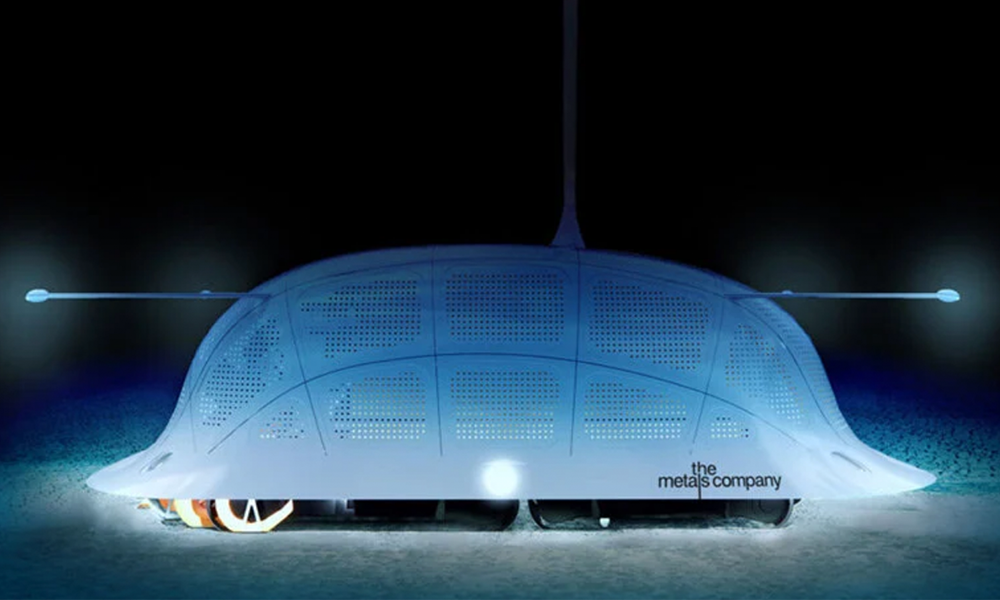
Electric car: this robot searches the oceans to build clean batteries

From water to the road. If an electric car has the advantage of not emitting CO2, the production of batteries is a black point. The extraction of rare metals, such as nickel or cobalt, or even the use of water for the production of electronic chips, are, and rightly so, cringe. But as it seems obvious to protect the natural resources present on earth, companies are forcing themselves to seek viable solutions, less polluting and more respectful of the environment.
This is the case of a Danish architectural firm ( Bjarke Ingels Group ) and a company specializing in the collection of metals from the oceans based in Vancouver ( The Metals Company ). Together, they imagined an autonomous and aquatic robot, which looks like a modern football stadium, to travel the depths of the oceans in search of "polymetallic nodules", mineral concretions (they are like rocks) rich in manganese, cobalt, nickel or copper

34 billion nodules. As The Metals Company website explains , “ Formed over millions of years by absorbing metals from seawater, these nodules are not attached to the abyssal seabed and are almost entirely made up of usable materials. Unlike terrestrial ores, they do not contain toxic levels of heavy elements and the production of metals from nodules generates 99% less solid waste with no toxic residues. In other words, these natural stones at the bottom of the oceans are a clean resource for building batteries for electric vehicles. In the idea, through a long pipe, the metals will transit to a 215-meter-long boat which serves as a storage platform before transporting it to a processing plant.
One of the places where The Metals Company plans to harvest the metal is called the Clarion Clipperton area. It is a surface of 9 million km2 between Hawaii and Mexico where there would be, according to the French Research Institute for the exploitation of the sea , 34 billion tons of “nodules”.

75% less polluting. According to estimates made by the two companies, with a fleet of 10 ships, they could pick up 40 million tonnes of metal by 2050, enough to produce 280 million batteries. A study conducted by American researchers, and published in the Journal of Cleaner Production in 2020, showed that " the production of battery metals from polymetallic nodules could reduce the sector's active emissions by 70% to 75% ", as the Clubic reports .
Contracts to authorize the collection of these minerals are already in progress, even if the organization Greenpeace is opposed to them for fears of a disturbance of the marine ecosystem. But to achieve carbon neutrality by 2050, solutions must absolutely be found to clean up the production of batteries.
Crédits photos : Bjarke Ingels Group & The Metals Company
Together with acclaimed global architecture firm Bjarke Ingels Group, we’re reinventing conventional metal production for the 21st century and turning metallurgy on its head. Discover more: https://t.co/yHcUyxpcbR @BIGstertweets
— The Metals Company (@themetalsco) May 12, 2021
